Movement in composition
March 2022
|Artists & Illustrators
Through an analysis of three masterworks, landscape painter and noted author MITCHELL ALBALA shows how you can animate landscape composition with movement

Landscape composition is a subject with many moving parts. For example, we have to consider several forms of variation, such as intervals (the “pacing and spacing” between elements), and differences of size and visual weight – all of which add interest to the visual tapestry. We also have to consider the “picture window” – the rectangular paper or canvas that determines what will be included in our composition and what will be left out. Of the many aspects of composition, however, the one that brings the most dynamic quality to a painting is movement.
Movement is what animates a composition and brings it to life. Our eye remains active and engaged as it moves around and through the picture. Only a blank surface, absent of any mark or shape, would have no movement at all. But as soon as we add shapes and colours and lines, our eye naturally begins to find pathways and seek connections between elements. Movement in landscape painting may be fast or slow, strong or gentle, steady or halting, but it is always desirable.
One criterion for selecting a subject is whether it suggests enough movement. The good news is that most subjects have obvious pathways of movement. Our job is to notice them and make sure we include them in our composition.
If our subject doesn’t seem to have enough movement, we must look for ways to amplify the movement – by slightly shifting elements around or modifying colours and values to accentuate an edge or contour. If we still can’t find adequate movement, then we should consider finding a subject that offers more.
هذه القصة من طبعة March 2022 من Artists & Illustrators.
اشترك في Magzter GOLD للوصول إلى آلاف القصص المتميزة المنسقة، وأكثر من 9000 مجلة وصحيفة.
هل أنت مشترك بالفعل؟ تسجيل الدخول
المزيد من القصص من Artists & Illustrators

Artists & Illustrators
Still life IN 3 HOURS
Former BP Portrait Award runner-up FELICIA FORTE guides you through a simple, structured approach to painting alla prima that tackles dark, average and light colours in turn
5 mins
March 2022
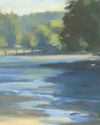
Artists & Illustrators
Movement in composition
Through an analysis of three masterworks, landscape painter and noted author MITCHELL ALBALA shows how you can animate landscape composition with movement
6 mins
March 2022
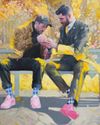
Artists & Illustrators
Shane Berkery
The Irish-Japanese artist talks to REBECCA BRADBURY about the innovative concepts and original colour combinations he brings to his figurative oil paintings from his Dublin garden studio
7 mins
March 2022
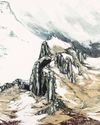
Artists & Illustrators
The Working Artist
Something old, something new... Our columnist LAURA BOSWELL has expert advice for balancing fresh ideas with completing half-finished work
2 mins
March 2022
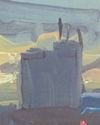
Artists & Illustrators
Washes AND GLAZES
Art Academy’s ROB PEPPER introduces an in-depth guide to incorporating various techniques into your next masterpiece. Artwork by STAN MILLER, CHRIS ROBINSON and MICHELE ILLING
7 mins
March 2022

Artists & Illustrators
Hands
LAURA SMITH continues her new four-part series, which encourages you to draw elements of old master paintings, and this month’s focus is on capturing hands
7 mins
March 2022

Artists & Illustrators
Vincent van Gogh
To celebrate The Courtauld’s forthcoming landmark display of the troubled Dutch master’s self-portraits, STEVE PILL looks at the stories behind 10 of the most dramatic works on display
6 mins
March 2022
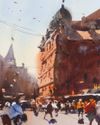
Artists & Illustrators
BRING THE drama
Join international watercolour maestro ALVARO CASTAGNET in London’s West End to paint a dramatic street scene
7 mins
March 2022
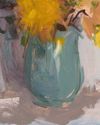
Artists & Illustrators
Serena Rowe
The Scottish painter tells STEVE PILL why time is precious, why emotional responses to colour are useful, and how she finds focus every day with the help of her studio wall
8 mins
March 2022

Artists & Illustrators
Bill Jacklin
Chatting over Zoom as he recovers from appendicitis, the Royal Academician tells STEVE PILL about classic scrapes in New York and his recent experiments with illustration
8 mins
March 2022
Translate
Change font size

